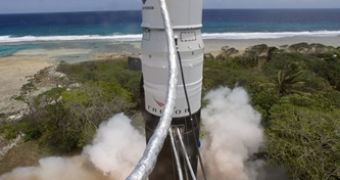Despite the Iran-North Korea-Syria Nonproliferation Act (INKSNA) regulations, which prevent US organizations from conducting business with Russia while the latter is supporting any of the countries mentioned in the Act, NASA still hoped for a government waiver that would allow them to continue using Russian rockets. But, even as this recently-extended governmental approval only enabled them to do business until 2016, NASA found a better option in turning their attention towards the success of the privately-funded and conducted development and launch of the Falcon-1 rocket by the United States' Space X (Space Exploration Technologies).
This comes as a result of NASA's long-since-announced 2010 shuttle decommissioning. But such accomplishments like Falcon-1's 4th flight from September 28th might just do the trick for NASA, who must carry manned missions to the International Space Station without their own rockets. But if something goes wrong, like in the case of Flight 3 of the Falcon-1 when the rocket experienced a stage separation incident causing NASA to lose two satellite systems, the company will still be allowed to make use of the Russian Soyuz rocket system for manned operations. As they deny showing interest in this aspect, Space X CEO Elon Musk is not worried about this possibility. As he explains, “I think it's probably a good thing NASA's hands aren't tied there. It's possible we may lose a few flights to the Russians but we are not going to lose more than that. There is no way Congress would tolerate sending millions of dollars to the Russians rather than to a U.S. company and keeping that money domestic”.
Referring to the impact of this November's government elections on NASA's spacecraft selection, Musk proved his confidence once again by stating that “neither [U.S. political party] likes sending money overseas if there's a U.S. supplier”.

 14 DAY TRIAL //
14 DAY TRIAL //